Recycling, health, and justice: The MAHAT project address hidden harms of plastic pollution in Chennai, India
As the world grapples with the escalating crisis of plastic pollution, recycling is often held up as a key solution. Yet behind the push for circularity lies an uncomfortable reality: while recycling may be good for the environment, it can come at a cost to human health, especially for those working and living closest to recycling operations.
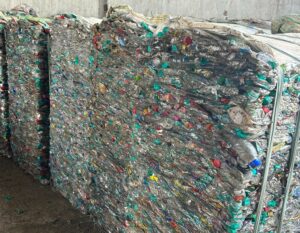
Image 1: Baled PET bottles at a recycling facility outside Chennai
Globally, less than 10% of plastic waste is recycled. In many countries, including India, recycling is driven by a vast and often informal workforce operating under challenging conditions. Workers may handle mixed or contaminated plastic waste with little protective equipment and recycling processes where plastic is washed, shredded, melted, and remoulded, can release hazardous substances into the air and water.
Plastics themselves often contain chemical additives, such as flame retardants, plasticisers, and stabilisers, that may be released during recycling, posing further health risks. This highlights that the issue is not only downstream; it is intrinsically linked to upstream decisions around plastic design and chemical use. Addressing these risks requires phasing out hazardous additives and designing plastic products that are safer and more recyclable from the outset.
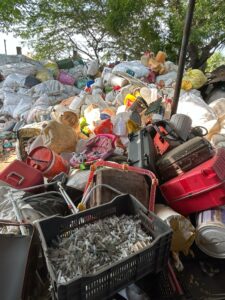
Image 2: Mixed plastic waste at a sorting site outside Chennai
To better understand and address these challenges, a new research initiative – MAHAT (Multi-scale Analysis of the Health Attributes of Plastic Recycling in India) – has been launched, led by the Norwegian Institute for Water Research (NIVA) in collaboration with SRM Institute of Science and Technology, Mu Gamma, and NILU. MAHAT brings together natural and social sciences to investigate how health risks from plastic recycling are experienced on the ground, and how policies can better protect those most exposed.
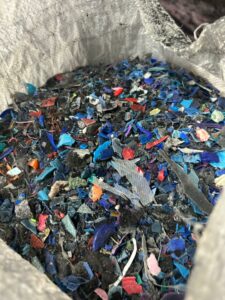
Image 3: Shredded plastic flakes destined for reprocessing
In June 2025, the project team undertook its first visit to Chennai, one of India’s major recycling hubs. Over the course of a week, researchers visited recycling facilities, met with workers and industry representatives, and hosted a dialogue session with key stakeholders including environmental regulators and civil society groups. From extruder units producing recycled plastic pellets to bottle-sorting operations, the field visits offered insights into both the potential and the pitfalls of recycling as it is practised today.
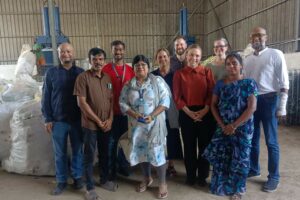
Image 4: MAHAT project team visiting a PET bottle recycling facility outside Chennai
Importantly, the MAHAT project is not about discouraging recycling. Rather, it seeks to make recycling safer, more inclusive, and more just. This involves four key objectives:
—> Analysing exposure: Identifying potentially hazardous substances, such as microplastics, endocrine disrupting chemicals, and persistent organic pollutants, in the air and water near recycling sites.
—> Understanding vulnerability: Examining how factors like gender, migration status, and housing conditions shape health risks for workers and nearby residents.
—> Co-producing solutions: Developing policy recommendations grounded in local realities, shaped by the perspectives of those most affected.
—> Informing global policy: Contributing to international efforts, such as the UN plastics treaty, to ensure that the transition to a circular economy does not deepen existing inequalities.
Recycling has a crucial role to play in ending plastic pollution. But if we are serious about a “just transition”, we must ensure that it does not harm those who make it possible. The MAHAT project is a step toward recognising their experiences and ensuring that health and dignity are not left behind in the name of sustainability.
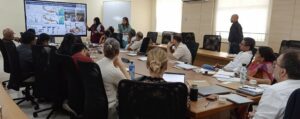
Image 6: Dr. Paromita Chakraborty sharing insights from the local pollution context during stakeholder dialogue session at SRM Institute of Science and Technology
About the author: Emmy Nøklebye is a research scientist at the Norwegian Institute for Water Research (NIVA) and part of the MAHAT project team.
Photo credits: All images © MAHAT project team (2025).
About the MAHAT project: Multi-scale Analysis of the Health Attributes of Plastic Recycling in India (MAHAT) is a research initiative running from 2025 to 2028. The project investigates health and environmental risks linked to plastic recycling, with a focus on justice and local realities.
Funded by: The Research Council of Norway (Project No. 352517)
For more information, please contact:
Dr. Marianne Mosberg (NIVA) – marianne.mosberg@niva.no
Prof. Paromita Chakraborty (SRM) – paromitc@srmist.edu.in